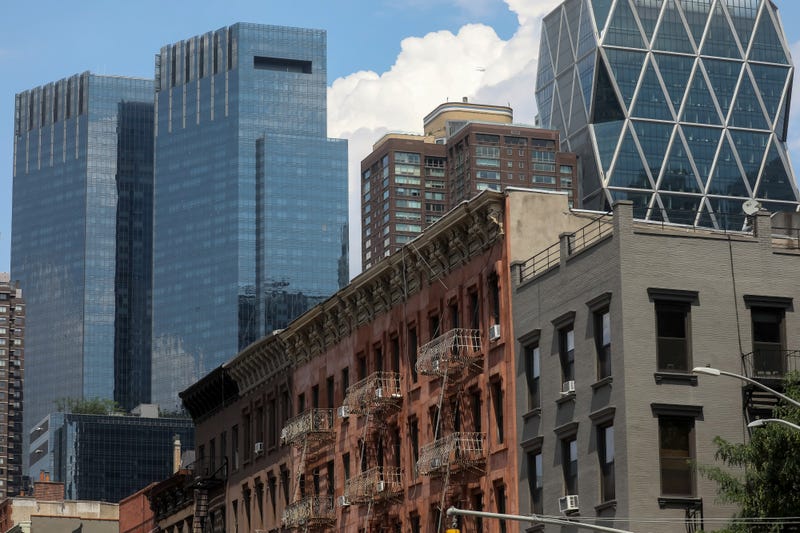
NEW YORK (BLOOMBERG) -- New Yorkers squeezed by the city’s housing crunch voted in favor of several ballot measures aimed at accelerating development.
Three proposals involving New York City housing — fast-tracking affordable housing projects, expediting modest developments and creating an appeals board — were approved by voters on Tuesday night, according to vote tallies recorded by the Associated Press and the New York Times. Zohran Mamdani said earlier in the day that he voted in favor of all three measures, after previously declining to reveal his position.
The city’s affordability crisis has dominated the election cycle, with Mamdani campaigning on his plans to make life easier for cash-strapped New Yorkers. About half of the metro’s renters spend more than 30% of their income on housing, the threshold that experts define as the outer limit of affordability.
Voters weighed in on six proposals in total, five of them specifically related to the city. Proposals 2 through 6 were written by a 13-member Charter Revision Commission convened by Mayor Eric Adams.
The three housing proposals — listed as Proposals 2 through 4 on the ballot — sparked outrage from the City Council during the lead-up to Election Day, as members argued the changes would weaken their control over neighborhood development. Proponents say that the measures are crucial for building more housing quickly. So did New York City’s electorate, which passed all three housing amendments with just over 50% of votes in favor.
“We will not be able to keep pace with what we have been building if we don't have a way to fast track approval for these projects,” said Barika Williams, executive director of the Association for Neighborhood & Housing Development. “Affordable housing projects are not happening because people are spending hundreds of thousands of dollars just to get approved to break ground. But communities should still have a way to guide what gets built.”
Here are the three housing-related measures that were approved by voters Tuesday night:
Fast Track for Affordable Housing
Listed as Proposal 2, this measure creates two “fast-track” processes that cut the review period to about three months for certain projects. Under the city’s current Uniform Land Use Review Procedure, or ULURP, each potential housing project in the city undergoes at least seven months of reviews and hearings by community boards, borough presidents, the City Planning Commission and the City Council. The final decision rests with the council unless the mayor issues a veto, which members can override with a two-thirds vote.
One of the two fast-track processes allows the city’s publicly financed affordable housing developments to bypass City Council and instead be reviewed by the local community board and the Board of Standards and Appeals.
The second involves affordable housing projects in the 12 community districts with the lowest rates of affordable housing, which tend to be wealthier and whiter. The new process will shorten the City Planning Commission’s period for review and eliminate the City Council’s review. The local council member will no longer have the authority to block the new housing development.
Expedited Reviews for Modest Development Projects
Under the current ULURP, a proposal to rezone Hudson Yards faces the same review process as that of a four-story building, which can drive up costs for smaller developers. To address this, Proposal 3 creates an Expedited Land Use Review Procedure, or ELURP, for smaller proposals.
The new process combines community board and borough president reviews into 60 days, followed by a 30-day City Planning Commission review. Brad Greenburg, the deputy director of the NYU Furman Center, said this change could boost overall housing volume, including market-rate development.
An Affordable Housing Appeals Board
This housing amendment, listed as Proposal 4 on the ballot, establishes an “Affordable Housing Appeals Board” made up of the mayor, the City Council speaker and the relevant borough president. The board can overturn land-use decisions approved or rejected by the council.
Supporters say the appeal board will help prevent council members from striking down affordable housing and encourage negotiations in good faith.
Critics including Andrew Berman, the executive director of advocacy group Village Preservation, worry that the appeals board weakens the leverage local communities have to negotiate with developers to include things like affordable housing or parks for their community, while giving too much power to City Hall.
“These ballots remove the checks and balances between the executive branch and the legislative branch,” he said. “When you do that, the outcomes are not good.”
More stories like this are available on bloomberg.com.
